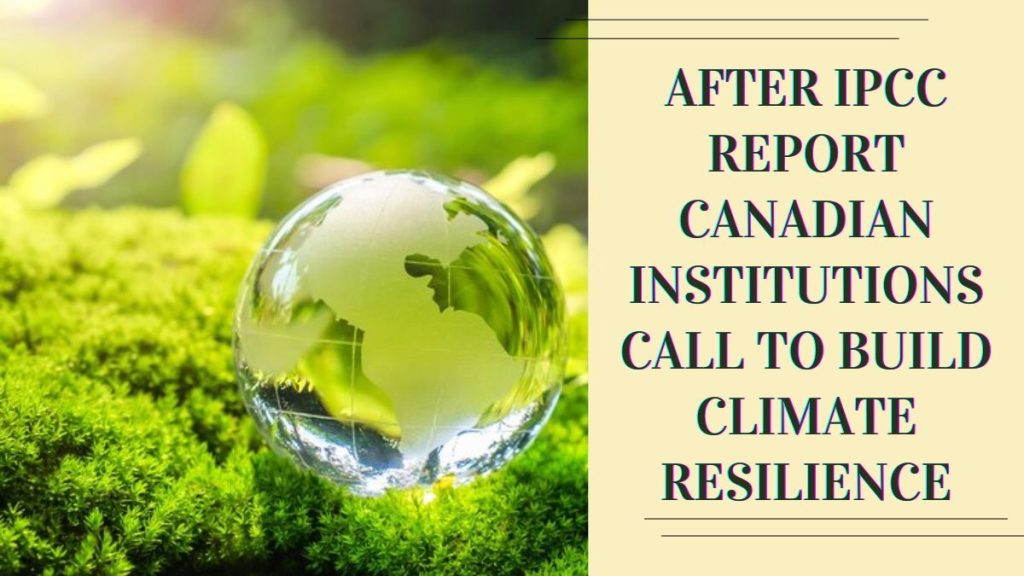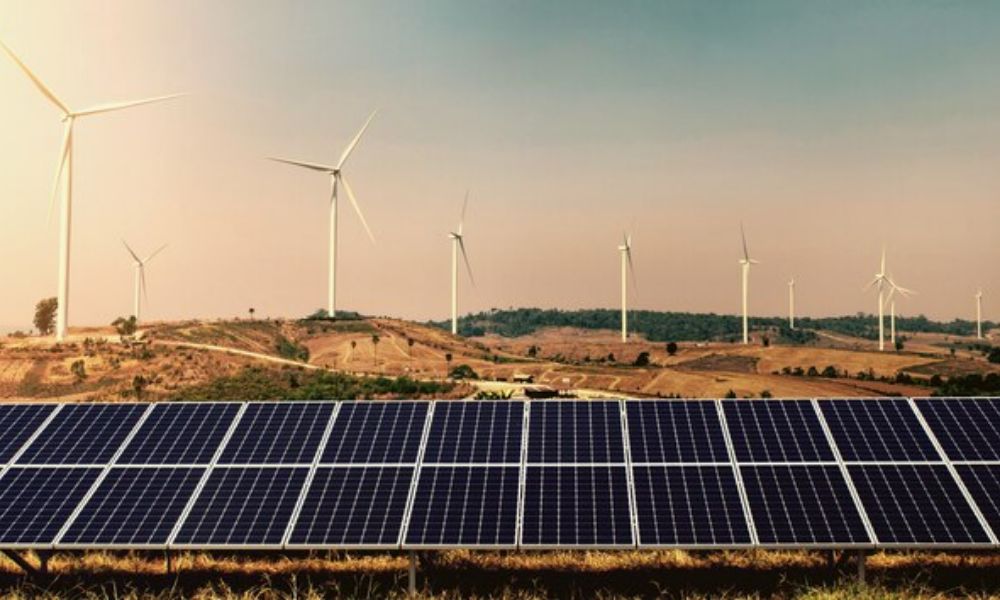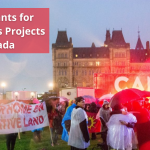
WWF-Canada urges world leaders to keep their climate promises and heed the warnings in today’s Intergovernmental Panel on Climate Change (IPCC) report, which includes the direst warning about the devastating effects climate change could have on humans’ natural world.
Climate Change 2022: Impacts, Adaptation, and Vulnerability reveal that the pace and scale of climate impacts are quickly increasing, resulting in disastrous consequences and exceeding existing mitigation efforts. It has been seen in Canada, where more frequent and catastrophic wildfires and floods have wreaked havoc on ecosystems and communities. However, there is still time to avoid the worst effects on the environment and people; it begins with countries dramatically reducing fossil-fuel emissions while investing in the ecosystem and community resilience. Protecting and rebuilding ecosystems that absorb and store carbon and water and other nature-based climate solutions can help with both.
Canada’s leading climate change think tanks call for a national strategy to build climate resilience in the wake of the Intergovernmental Panel on Climate Change (IPCC) report. Released earlier this month, the report warns that global warming of 1.5 degrees Celsius above pre-industrial levels could lead to catastrophic consequences, including widespread food shortages and displacement of millions of people.
In a joint statement, the Pembina Institute, Canada’s Eco fiscal Commission, and Clean Energy Canada called for Canada to develop a “resilience strategy” that would identify and address vulnerabilities to climate change across all sectors of the economy. The strategy would include investments in infrastructure, research and development, and risk management.
In the wake of the Intergovernmental Panel on Climate Change’s (IPCC) special report, Canadian institutions call for greater climate resilience. The National Round Table on the Environment and the Economy (NRTEE), a federally appointed advisory body, has issued a new report that urges Canada to take a leadership role in global efforts to build resilience to climate change. The report, called “Building Resilience to Climate Change: A Roadmap for Canada,” states that immediate action is needed to reduce Canada’s vulnerability to the impacts of climate change.
According to the NRTEE, climate change represents one of the most severe challenges facing humanity, and everyone in Canada will feel its impacts. The organization is calling for a coordinated national effort to build resilience to climate change, involving all government and the private sector.
The NRTEE’s report comes on the heels of the IPCC’s special report, which warned that the world is running out of time to take action to prevent catastrophic levels of global warming. The report called for rapid and far-reaching changes in energy, land, urban, and infrastructure systems to keep global warming below 1.5 degrees Celsius. In light of these warnings, it is clear that Canada must take steps to reduce its vulnerability to the impacts of climate change. The NRTEE’s roadmap provides a blueprint for how this can be done.
In the wake of the damning IPCC report, Canadian institutions call for increased climate resilience.
The Intergovernmental Panel on Climate Change (IPCC) released a report on Monday that paints a dire picture of the world’s future if emissions continue to rise at their current rate. The report states that global warming must be kept below 1.5 degrees Celsius to avoid catastrophic consequences.

In light of this news, many Canadian institutions are calling for increased action on climate resilience. The City of Toronto, for example, has announced plans to make its buildings more energy-efficient and to plant more trees. The Federation of Canadian Municipalities urges provinces and territories to develop “robust” climate adaptation plans.
The Bank of Canada has warned that the effects of climate change could put a significant dent in the country’s GDP. It is calling for increased investment in green infrastructure and research and development to help mitigate the effects of climate change. In a statement, Canadian Prime Minister Justin Trudeau said that he agreed with the report’s findings and that his government was already addressing climate change.
“We know we have to take decisive action to fight climate change and protect our economy – and we are doing exactly that,” he said. As the world comes to terms with the grim realities laid out in the IPCC report, it is clear that Canadian institutions are stepping up to meet the challenge. With increased resilience comes a more secure future for us all.
After the IPCC report was released, Canadian institutions started to call for increased climate resilience. The City of Toronto announced plans to make its buildings more energy-efficient and plant more trees. The Federation of Canadian Municipalities urged provinces and territories to develop “robust” climate adaptation plans. The Bank of Canada warned that the effects of climate change could put a significant dent in the country’s GDP and called for increased investment in green infrastructure and research and development. In a statement, Canadian Prime Minister Justin Trudeau said that he agreed with the report’s findings and that his government was already addressing climate change. He added that we need to take “decisive action” to fight climate change and protect our economy.

As the world comes to terms with the grim realities laid out in the IPCC report, it is clear that Canadian institutions are stepping up to meet the challenge. With increased resilience comes a more secure future for us all. You can find a more detailed roadmap for climate resilience in the NRTEE’s report, released on Tuesday. The report provides a blueprint for how Canada can reduce its vulnerability to the impacts of climate change. It calls for action at all levels of government and the private sector and stresses the need for collaboration between stakeholders.
The release of the NRTEE’s report coincides with the publication of the IPCC’s special report, which warned that the world is running out of time to take action to prevent catastrophic levels of global warming. The IPCC report called for rapid and far-reaching changes in energy, land, urban, and infrastructure systems to keep global warming below 1.5 degrees Celsius.
We need to take urgent action on climate change to protect our economy and safeguard our future. The NRTEE’s report provides a roadmap for how Canada can do just that, and it is time for all of us to get on board.
In conclusion, the IPCC report paints a dire picture of the world’s future if emissions continue to rise at their current rate. However, Canadian institutions are stepping up to meet the challenge. With increased resilience comes a more secure future for us all. Climate change is a global problem that requires global solutions, and the release of the IPCC’s special report on climate change this week is a clear sign that we are starting to take the issue seriously. The report, which 91 authors compiled from 40 countries, paints a bleak picture of the world’s future if emissions continue to rise at their current rate. It calls for rapid and far-reaching changes in energy, land, urban, and infrastructure systems to keep global warming below 1.5 degrees Celsius.

The report has been met with mixed reactions, with some people arguing that the proposed changes are too drastic and others saying that they don’t go far enough. But one thing is clear: We need to take decisive action on climate change to protect our economy and safeguard our future.






Leave a Reply